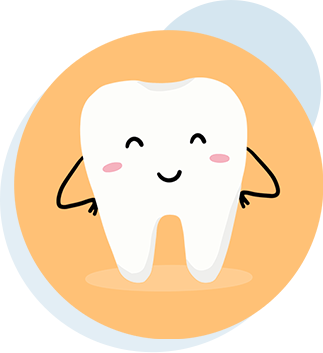Understanding Clear Aligners
Before we explore the specifics of clear aligners, let’s first understand what they are. They’re a modern solution to traditional orthodontic treatments, offering a more aesthetically pleasing and convenient way to straighten teeth.
What Are Clear Aligners?
Clear aligners are orthodontic devices that use transparent plastic trays to adjust teeth alignment. They’re custom-made for each patient, ensuring a perfect fit.
Clear aligners come in stages, and you’ll typically wear each stage of aligner trays for about one to two weeks. Each set of aligner trays is designed to make slight adjustments to the position of your teeth.
Unlike traditional braces, clear aligners are not fixed to the teeth. They’re removable, which means you can take them out when eating or brushing your teeth. This flexibility makes them a popular choice among adults and teens.
How Do Clear Aligners Work?
The clear aligner process starts with a consultation with your A+ Dental Care dental professional. They’ll take a digital scan or mold of your teeth, which the aligner manufacturer will use to create your custom teeth aligners. You’ll then receive a series of aligners, each designed to move your teeth gradually.
You’ll wear each set of aligners for about two weeks before moving on to the next set. It’s important to wear them for 20-22 hours a day to ensure the treatment is effective. Regular checkups with your provider will monitor your progress and make any necessary adjustments.
Benefits of Choosing Clear Aligners
Several benefits come with choosing clear aligners for your orthodontic treatment:
- Aesthetics: Clear aligners are virtually invisible, making them a discreet option for straightening your teeth.
- Comfort: Without wires or brackets, clear aligners are typically more comfortable than traditional braces.
- Convenience: Being removable, they allow for easier eating and oral hygiene.
- Customization: Each aligner is custom-made for your teeth, ensuring a precise fit and effective treatment.
- Predictability: Advanced technology allows providers to plan your treatment and accurately predict results.
Clear aligners can be an effective solution for crowding, gaps, or certain bite problems. However, they’re not suitable for every case, so a consultation with a A+ Dental Care dental professional is essential.

Clear Aligners: What to Expect
If you’re considering clear dental aligners, it’s important to know what to expect. The process begins with finding the right clear aligner provider near you. You’ll want to choose a dental professional with experience and expertise in clear aligner treatment. Fortunately, you’ve already found A+ Dental Care, and we’re experts in clear aligners with a track record of great results.
Next, you’ll have an initial consultation where you can discuss your dental concerns and goals. Your provider will assess your oral health and determine if clear aligners are a suitable treatment option for you.
Once you’ve decided to proceed with clear aligners for teeth, the customization and treatment process begins. This involves creating a digital model of your teeth and designing your custom aligners.
The Initial Consultation
The initial consultation is an important step in the clear aligner process. During this appointment, your provider will examine your teeth and discuss your treatment goals. They’ll also take a digital scan or mold of your teeth.
This consultation is also an opportunity to ask any questions you may have about clear aligners for teeth. Be sure to inquire about the cost, duration of treatment, and what to expect during the process.
A+ Dental Care offers free initial consultations for clear aligners. This can help you explore your options without any financial commitment.
Customization and Treatment Process
Once you’ve decided to seek clear aligners near you, the customization process begins. The clear aligner manufacturer will use the digital scan or mold of your teeth to create your custom aligners. Each set of aligners is designed to make slight adjustments to the position of your teeth.
You’ll wear each set of aligners for about one to two weeks before moving on to the next set. Regular checkups with your provider will monitor your progress and make any necessary adjustments.
Remember, the success of clear aligner treatment depends on your commitment to wearing the aligners as prescribed. For the best results, it’s important to wear them for 20-22 hours a day.
Clear Aligner Cost
When considering clear aligners near you, it’s important to understand the costs involved. Clear aligners cost can vary based on several factors, such as case complexity and treatment duration.
In addition to the cost of the aligners themselves, you may incur other expenses, such as post-treatment retainers and replacing lost or broken aligners. It’s also worth noting that some providers may offer additional services, like teeth whitening, with clear aligner treatment.
Before starting treatment, discuss all potential costs with your provider. This will help you avoid unexpected expenses and plan your budget accordingly.
How Much Do Clear Aligners Cost?
The cost of clear aligners near you can vary widely depending on the case. Some cases may require more complex treatment, which can increase the cost. Conversely, simpler clear aligner cases may cost less.
It’s important to get a detailed quote from your provider before starting clear aligner treatment. This should include all costs associated with your clear aligner treatment, including any necessary follow-up care.
Insurance and Payment Options
Dental insurance may cover a portion of the cost of clear aligners. It’s important to check with your insurance provider to understand what is covered. You can also give A+ Dental Care a call so we can review your coverage and let you know if and how much your insurance will cover.
A+ Dental Care also has other convenient payment and financing options to fill the gap left over by your insurance or to cover the full amount if insurance doesn’t cover it. Our payment options include:
- Credit cards: We accept all major credit cards. Some cards may offer special financing to allow you to spread out the cost with little to no interest.
- Care Credit: We also accept Care Credit, which often offers 0% financing for extended periods.
- In-house financing: A+ Dental Care also offers in-house financing that allows you to spread the cost of your clear aligners over several months.
Remember, investing in clear aligners is an investment in your oral health and confidence. While the upfront cost may seem high, the benefits of a straighter, healthier smile can be priceless.
Maintenance and Care for Clear Aligners
Taking care of your clear aligners is crucial for successful treatment. You should clean your aligners regularly to maintain oral hygiene and prevent staining. You can do this by brushing them with a soft-bristled toothbrush, using a non-abrasive toothpaste, and using a dental appliance cleaning solution.
You should also avoid eating or drinking anything other than water while wearing your aligners to prevent damage.
You should store your aligners in a protective case while not in use to help avoid loss or damage. If an aligner does get lost or broken, contact your provider immediately. They can advise you on the next steps and any potential impact on your treatment plan.
Finally, remember to maintain regular dental checkups during your clear aligner treatment. This allows your provider to monitor your progress and ensure your oral health is maintained.
Straighten Your Smile with Clear Aligners at A+ Dental Care
Clear aligners offer a modern, discreet solution for straightening teeth. They are a popular choice for their convenience and aesthetic appeal.
However, it’s important to remember that successful treatment requires commitment. This includes wearing the aligners as prescribed and maintaining good oral hygiene.
Schedule Your Clear Aligner Consultation
If you’re considering clear aligners, the first step is to schedule a consultation with A+ Dental Care. We can review your goals and questions and determine if clear teeth aligners are the right choice for you.
Don’t wait to start your journey toward a straighter, healthier smile. Schedule your clear aligner consultation today.



